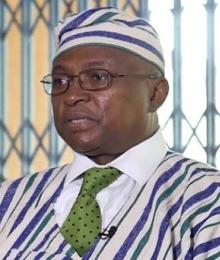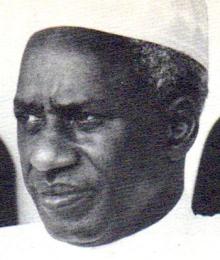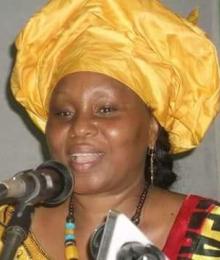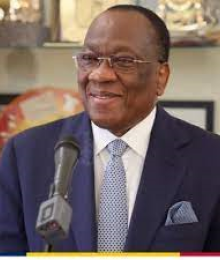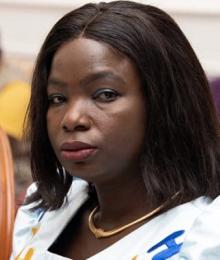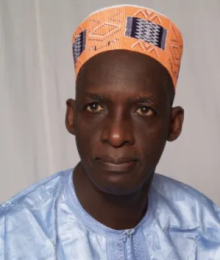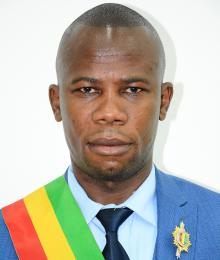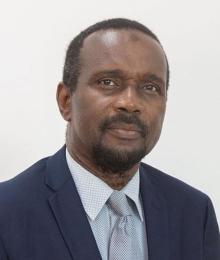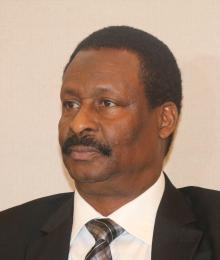
Cheick Taliby Sylla is a Guinean political figure who served as the Minister of Energy and Hydraulics of the Republic of Guinea from October 2014 to May 2020. Before his ministerial appointment, he was known for directing the Kaléta hydroelectric dam project (2012-2015), a flagship initiative under President Alpha Condé's administration. During his ministerial tenure, he oversaw the completion of the Kaléta dam and claimed significant improvements in national electricity coverage, though his period was also marked by persistent power outages and public criticism.
Following his dismissal in May 2020 amid protests over electricity problems, he briefly turned to agriculture in his native Kindia region before being appointed as a Presidential Advisor for International Relations in October 2020. Beyond his political career, he's known for his local development initiatives in Kindia and his ongoing rivalry with fellow politician Oyé Guilavogui.
Introduction
Cheick Taliby Sylla is a Guinean political figure who made his mark by serving as Minister of Energy and Hydraulics of the Republic of Guinea from October 2014 to May 2020. His professional journey and commitment to the country’s energy development shaped Guinea’s political landscape for nearly a decade.
Early Role in the Kaléta Project
Before joining the government, Cheick Taliby Sylla gained recognition as the Director General of the Kaléta Hydroelectric Project from 2012 to 2015. This dam, considered one of President Alpha Condé’s flagship projects, was built in partnership with Chinese stakeholders and employed nearly 2,500 Guinean and 850 Chinese workers.
As early as July 2013, while still director of the project, Sylla confidently declared that "the Kaléta hydroelectric project has reached its point of no return" and that "work is progressing by leaps and bounds." Under his leadership, teams worked day and night to meet construction deadlines. At that time, he announced that all excavation work had been completed and concreting on the dam axis had already begun.
This major project, valued at $526 million and financed by Guinea and China (via China Water Energy), had a regional scope. Part of its production was intended for other West African countries under an interconnection initiative involving Guinea, The Gambia, Senegal, and Guinea-Bissau.
Ministry Defined by Ambition and Challenges
In October 2014, Cheick Taliby Sylla was appointed Minister of Energy and Hydraulics in the Guinean government. His tenure was characterized by ambitious plans to address the country's chronic energy issues, as well as by considerable challenges.
By June 2015, he voiced his frustration with the slow progress of what he called his energy sector "revolution." In a cabinet meeting, he told his team: "My revolution is stalling. Something is wrong. I want to understand." He lamented the lack of concrete proposals and realistic projects, even though international financial institutions had returned to support the sector with up to $20 million in funding.
Commissioning of the Kaléta Dam
One of Sylla’s most notable achievements during his ministerial term was the completion and commissioning of the Kaléta Hydroelectric Dam in 2015, with a capacity of 240 MW. According to Sylla, this project significantly improved electricity supply on the national interconnected grid.
In January 2019, during a press conference, he presented a positive report: "The electricity coverage rate increased from 51.82% in 2014 to 86.46% in 2018, and the number of outages dropped from over 68 times/month in 2014 to fewer than 5 times/month in 2018." He added that "energy production increased from 696 GWh before Kaléta to 1,876 GWh in 2018" and that "42 rural localities along the interconnected grid from Conakry to Labé were electrified."
Criticism and Persistent Issues
Despite progress, Sylla faced growing criticism over persistent power outages in Conakry and other regions. In December 2016, he acknowledged the difficulties in electricity distribution in the capital. In February 2019, during a radio interview, he attempted to justify these issues by pointing to a significant rise in consumption: "Consumption has more than doubled," he said, citing increased household appliance usage following initial improvements in supply.
Regarding the Kaléta dam, he admitted that "during the dry season, Kaléta could experience difficulties" as it is "a run-of-the-river dam," and confessed, "I am not satisfied with the dam because we still cannot supply electricity as we should."
Other Energy Projects
Throughout his tenure, Cheick Taliby Sylla was involved in several other energy initiatives, including:
- A June 2018 visit to assess the Garafiri Hydroelectric Dam, which he described as being in a state of "advanced degradation," with "very outdated equipment" and water supply issues.
- The July 2018 launch of work to connect mining industries to the national grid, in anticipation of the commissioning of the Souapiti hydroelectric plant. On this occasion, he pledged to "provide clean energy to reduce additional costs, making Guinean bauxite and alumina more competitive on the global market."
- An electrification project aiming to achieve 85% national coverage by 2020, aligned with President Alpha Condé’s vision.
Controversies and Difficulties
Sylla’s career was not without controversy. In June 2018, an audit report by the Société des Eaux de Guinée (SEG) accused him of having "improperly received 321,461,134 GNF in salaries as Director General of SEG while serving as Minister of Energy and Hydraulics" from 2015 to 2017. He was ordered to reimburse the amount.
Additionally, tensions were reported between him and the Minister of Environment, Oyé Guilavogui, both natives of Kindia. The rivalry grew intense enough for President Alpha Condé to publicly intervene in January 2019, urging them to "shake hands" and avoid "falling into division."
In February 2020, Sylla made a controversial statement, claiming that Guinea had "become the fourth-largest energy exporter within ECOWAS," despite struggling to meet domestic demand and having to import electricity from Côte d'Ivoire. This remark drew heavy criticism, with some accusing him of "state-level dishonesty."
Local Commitment and Social Actions
Alongside his ministerial duties, Cheick Taliby Sylla remained active in his native region of Kindia, particularly in his village of Foulayah. Notable local contributions include:
- Building and improving the Foulayah mosque, where his father served as imam for over forty years
- Constructing several mosques in different villages and neighborhoods of Kindia
- Electrifying rural communes such as Samayah, Kolentin, Souguéta, Linsan, and the sacred site of Tabouna
- Building a primary school in the Yengueleyah district, rural commune of Friguiagbé
- Donating around 40 motorbikes to neighborhood chiefs and district leaders in the urban commune
- Renovating and equipping the local headquarters of the RPG Arc-en-ciel party
- Supporting the annual inter-neighborhood football tournament
End of Term and Career Shift
On May 12, 2020, Cheick Taliby Sylla was dismissed from his position as Minister of Energy amid growing protests over ongoing electricity issues, despite billions invested in the sector. The presidential decree stated he was "called to other functions."
After a brief period of silence, he redirected his focus to agriculture in his native Kania, in the Kolontin sub-prefecture, about 50 km from Kindia. There, he developed dozens of hectares of farmland, including ten hectares of maize for poultry feed and several hectares for rice cultivation.
In October 2020, it was announced that he had been appointed Minister-Counselor for International Relations at the Presidency of the Republic. During the presidential election that same month, he stated: "I first want to congratulate the citizens of Kindia. Despite the heavy rain that fell this morning, there was a strong turnout."
In January 2021, he expressed frustration at being excluded from a ceremony honoring contributors to the RPG Arc-en-ciel’s electoral success in Kindia, blaming his rival Oyé Guilavogui for the snub. He lamented that ongoing rivalries continued to hinder development in the Kindia prefecture.
Conclusion
Cheick Taliby Sylla’s journey reflects the challenges of governance in a critical sector like energy in Guinea. From his leadership on the Kaléta project to his role as Minister, he worked to improve access to electricity in a country with immense needs. Despite notable achievements like the commissioning of the Kaléta dam and increased electrification rates, unresolved distribution issues eventually led to his departure from the government in May 2020.
His local engagement in Kindia and transition to agriculture show a continued commitment to his roots and an ability to reinvent himself after a turbulent political career. Today, he remains a controversial figure in Guinean politics, notably due to the local rivalries that still persist in Kindia.











